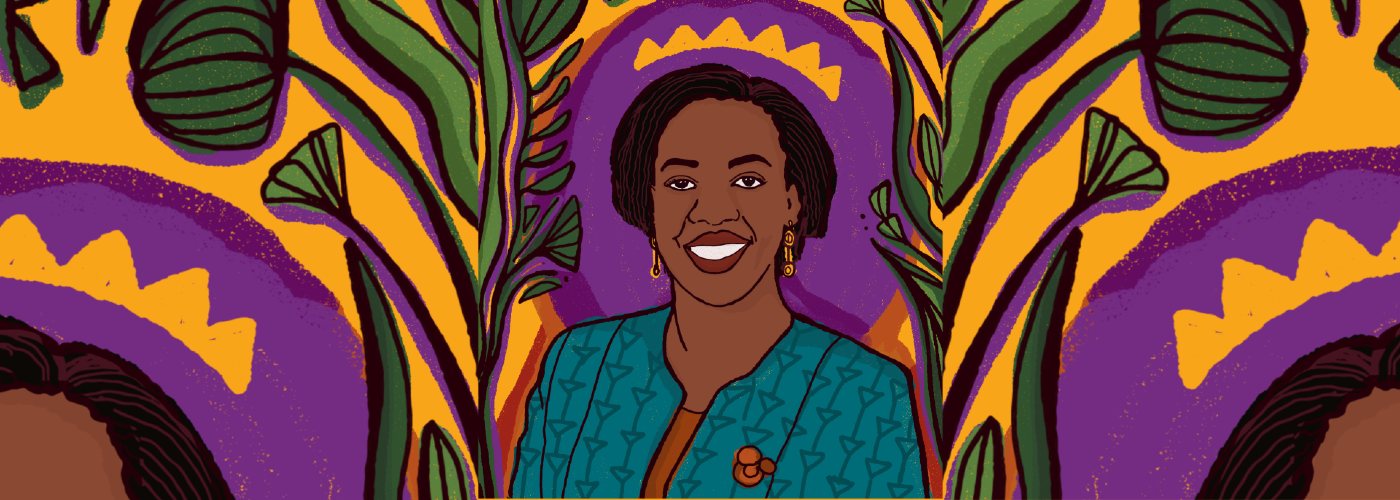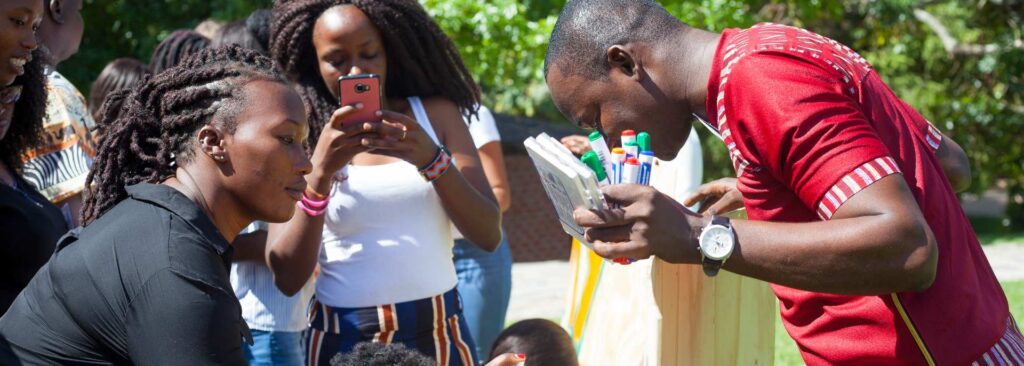Lucy Minayo is a lawyer and pan-African feminist. She’s been working in human rights for close to two decades and has gained invaluable experience in Sexual and Reproductive Health Rights (SRHR). She has been with numerous national and international NGOs, including FIDA Kenya, Kenya National Human Rights Commission, IPAS, and the Center for Reproductive Health Rights. Today Lucy is the Global Program Manager of the We Lead Program at Hivos, and she’s become a force to reckon with in the SRHR space.
Lucy is credited with feminizing Kenya’s gender space, particularly in reproductive health rights policies, and with leading a major campaign in Africa aimed at decriminalizing abortion.
I am leaving behind a legacy for young women in SRHR.
Tell us about your journey in the development space
Lucy: My career path has been pretty interesting – not at all linear! First, I had to demystify the perceptions that accompany women who are deemed strong. I have been referred to as an “aggressive feminist” but this hasn’t deterred me from claiming my space and speaking boldly about women’s right to bodily autonomy. My journey has also been shaped by a rich portfolio of women who grounded me in feminism. This enabled me to use my talent and skills to feminize the SRHR movement across sub-Saharan Africa.
What do you love about Women’s History Month?
Lucy: Women’s History Month is an opportunity to reflect on women’s rich legacies in society. Equally it’s a moment to celebrate women’s achievements, recognize the dynamism that is inherent in women and the differences that we bring to the table.
What does the phrase: #BreakTheBias mean to you?
Lucy: Break the bias is about unlearning ingrained biases that hold us back and raise barriers to the advancement of women’s human rights. We also need to have thoughtful conversations on what the future looks like for women. In my space, SRHR, it’s about challenging patriarchal narratives, pushing the needle forward, being bold, not being afraid of our truth, and not censoring ourselves.
Do you think it’s Uhuru (freedom) yet for women when it comes to equality?
Lucy: We are far from this reality. Kenya for example is still lagging in SRHR, and there’s systemic exclusion of women from decision-making. We have yet to recognize, acknowledge and affirm women’s bodily integrity, and are still talking about policy and legal frameworks. This dragging our feet is also unfortunately leading to the deaths of many because of unsafe abortion.
How does your current role at Hivos help you mobilize and influence other women?
Lucy: My program We Lead is structured to look for young women with brilliant ideas but who can’t get funding because they don’t have formal organizations. As the lead, I’m always trying to give them a front seat and open doors for them to spaces where they can rally support and take action for women’s SRHR.
Who inspires you?
Lucy: My parents. They were government workers who made clean money and lived a life of integrity and admirable ethics in the workplace.
What do you want to be known for?
Lucy: I want to be remembered as someone who walked the talk when it comes to SRHR and didn’t merely peddle empty promises. I also aim to leave a legacy of young women boldly standing up for their rights without fear.






